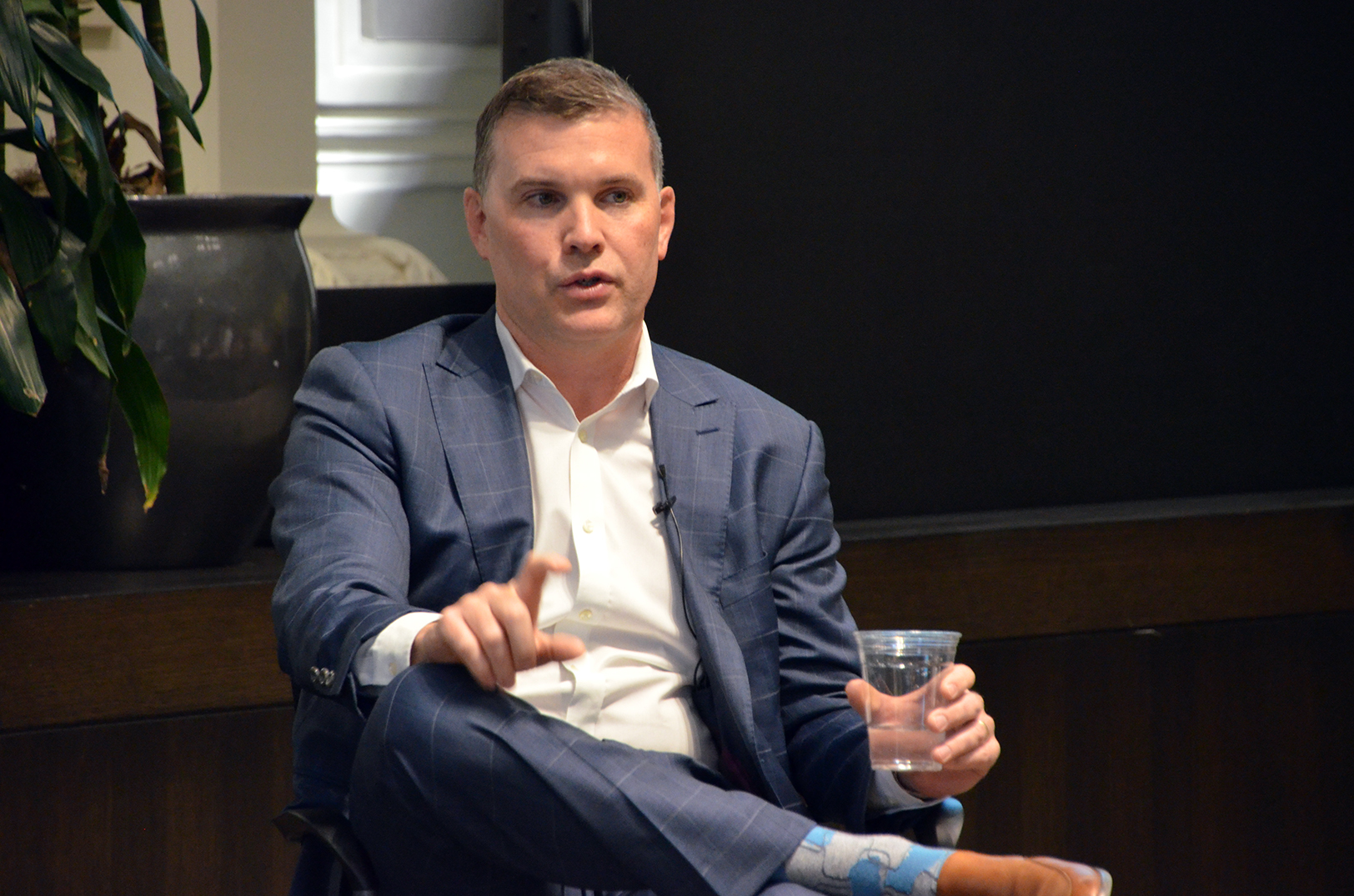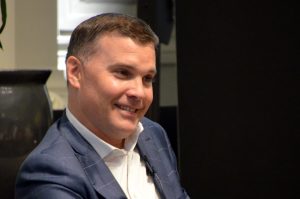Kansas City’s unequal playing field for children and inconsistent access to early education programs has a distinct ripple effect into the business community, Matt Condon said, advocating for Mayor Sly James’ Pre-K for KC initiative.
“I don’t make any apologies about what a great city this is. But on this issue in particular, we are falling behind and it is becoming a competitive disadvantage to organizations like mine that are trying to bring talent or hire talent from inside the city,” said Condon, CEO of Bardavon Health Innovations and former board chair of the Greater Kansas City Chamber of Commerce.
An answer, he told a crowd gathered for a Chamber event building “The Business Case for Pre-K,” is the mayor’s April 2 ballot initiative. An effort that advocates say would fund high-quality Pre-K for all KCMO children, the three-eighths cent economic development sales tax is expected to generate $30 million a year for early education, if passed.
For Condon, whose company has grown from one to 115 employees in just three years, access to such Pre-K programming is an issue that greatly impacts his startup’s ability to scale — with many members of his team, he said. Many need better options for childcare, so they can put in adequate hours at work, he continued.
“I can’t articulate loudly enough how competitive this is. … When we are recruiting talent from San Francisco, from New York City, those people today are moving their 3- and 4-year-olds to this community and they’re asking … ‘What is Kansas City doing for kids who are my kids’ age?’”
Mayor puts KC ‘on notice’

Sly James, Kansas City mayor
Go out and be an apostle for children, Mayor James urged the crowd of Chamber members and childcare advocates.
“Get this done,” the signature bowtie-clad James said ahead of the April 2 vote.
Critics of the Pre-K for KC ballot question, including Kansas City Public Schools Superintendent Mark Bedell, have argued funding from the initiative would not be distributed fairly since the plan allots money to both public and private institutions, including those with religious affiliations, and across economic boundaries. As a regressive tax, the proportionate impact could be higher on lower-income families, opponents also have said.
Click here to read more about the structure of the initiative.
“We have a moral responsibility to make sure our children have the opportunity to compete in an increasingly technologically oriented world,” James said at the gathering. “They can’t do it themselves. And if we don’t do it, shame on us.”
An issue long neglected by Kansas City leaders, Pre-K for KC is a chance to do better, James said candidly.
“‘You’re on notice,’ as we say, in the practice of law.”
Condon felt called to help reverse the trend toward apathy — and the idea that educating other people’s children was someone else’s responsibility, he said.
“What manifested for me — in particularly over the last several years — was the dramatic difference between the experience that my children had and the experience that so many other children in this community are growing up in,” Condon said.
“I think our kids expect us to do something important,” he continued. “If we’re given a moment to make a difference in the communities of which we live, I think we have a responsibility that they’re going to look at and wonder and ask ‘Did dad really do his part?’ And so I go to bed every night thinking about that,” he added.
Click here to read how another entrepreneur is doing his part to better the education space in Kansas City.
Power a brain ‘explosion’
According to the U.S. Chamber of Commerce Foundation, 40-percent of businesses cannot fill open positions. Such a statistic could be directly tied to a lack of adequate childcare options, said Julia Barfield, senior manager of policy and programs at the U.S. Chamber.
But startup and job growth are just two issues a lack of childcare options presents Kansas Citians. Child development is at risk, James said.
“What we’re talking about here is trying to affect kids before they turn 5 years old. And the reason for that is is that between the ages of zero and 5 is the biggest explosion in the human brain. That’s when the brain is 90-percent formed and what we are doing [now] is not addressing that adequately.”
Click here to read more about Kansas City parents’ concerns about childhood brain development.
Investment in the Pre-K initiative would lay a strong foundation for children, Barfield noted, allowing them to excel faster when they enter kindergarten.
“Every educator talks about how important it is to address the achievement gap. We can see it when you break it down by racial and economic groups, you can see it when you break it down by socioeconomic groups,” Barfield said. “But we don’t talk about how the act of the achievement gap is seen from a long way off. And we are not doing what we need to do to close that before it starts.”
Closing the achievement gap is a problem that could be solved by the three building blocks of the Pre-K for KC initiative: self-regulation, social expression, and Kindergarten readiness.
As a parent and an employer, Condon said, he urged voters to seize the opportunity to create change in Kansas City.
“It’s not just our opportunity,” Condon said. “It’s our responsibility to stand up and try to do things that are going to impact, maybe not my company this year, but the entrepreneur a decade or two decades from now, his or her company in a way that’s meaningful and supportive of this community.”








































